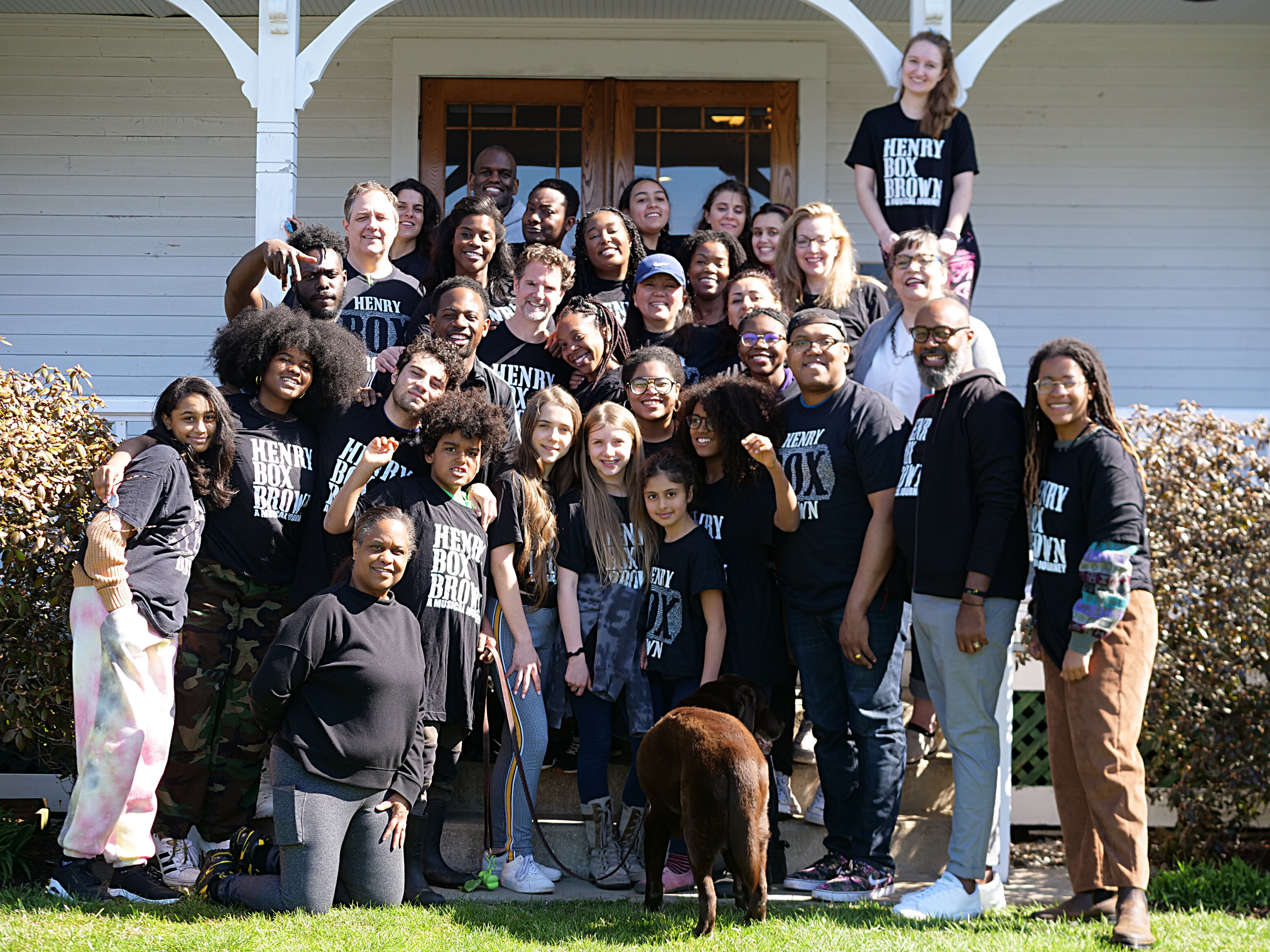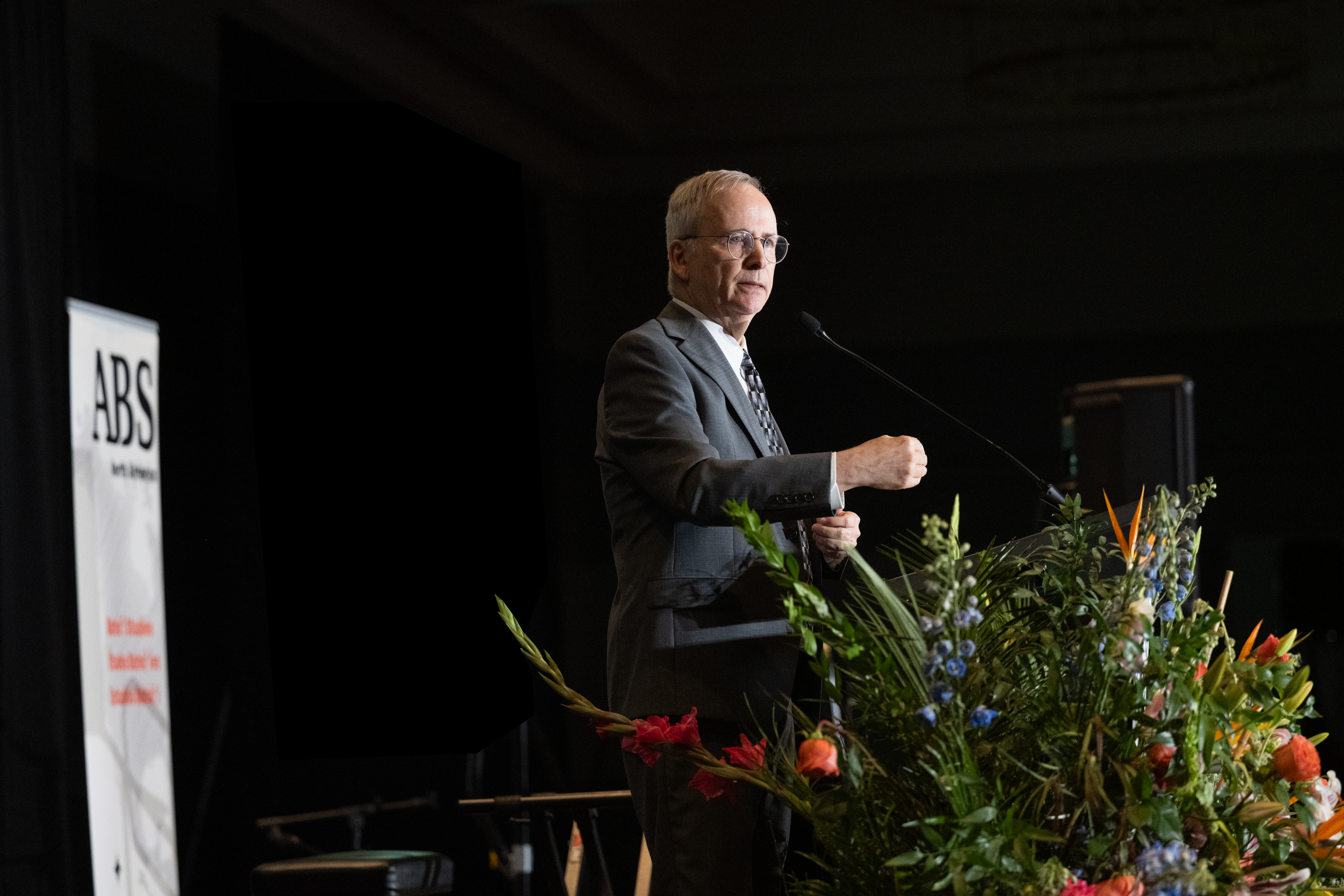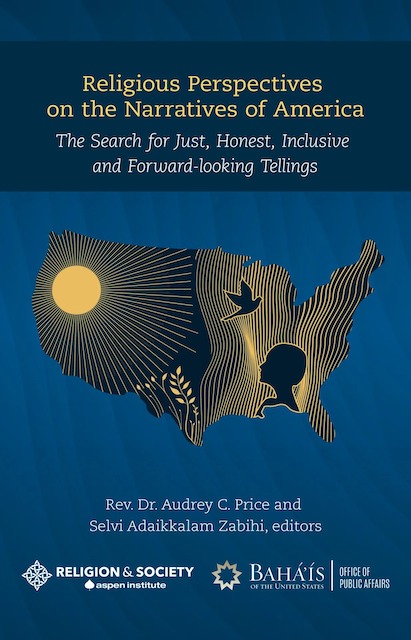
To the next level: Race amity center builds on a century’s legacy
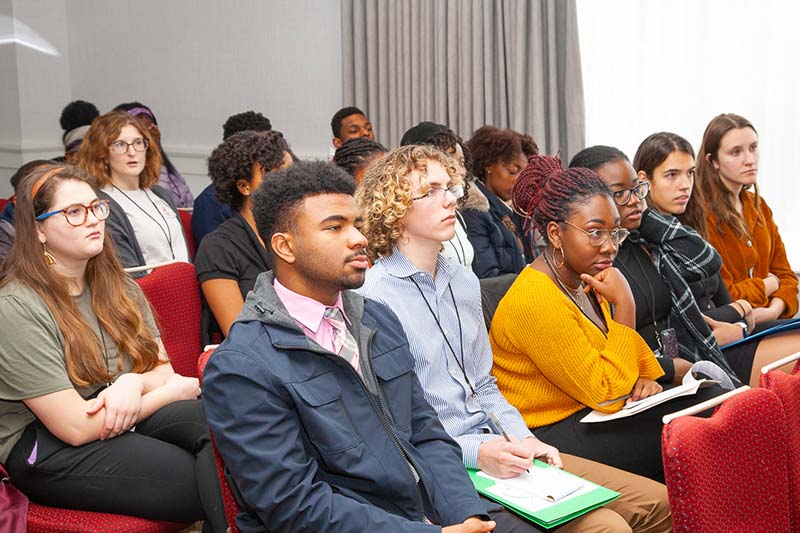
For more than a century, Baha’is in the United States have worked with like-minded people to form friendships across racial barriers — not only encouraged by the teachings of the Faith, but also at the urging of its worldwide leadership.
The National Center for Race Amity (NCRA) is planning events over the next year that will honor the intention and the symbolism of the earliest Baha’i-organized Race Amity Conferences, which began in 1921 in response to a directive of ‘Abdu’l-Baha, head of the Baha’i Faith at the time.
“We’re so hopeful of what we can do and how we can help bring this spirit of amity, which was so clearly pointed out by ‘Abdu’l-Baha for us as a guiding light to help us move to the next level in America,” says William “Smitty” Smith, founding director of the center in Boston.
Two big upcoming events are part of this. The next National Race Amity Conference, the 10th since its revival, is planned for Nov. 19–21 as a virtual conference. Details are to be announced June 1 on the National Center for Race Amity website.
Then a conference is planned for May 2021 in Washington, DC, site of the first Race Amity Conference organized by Baha’is a century earlier. Colleagues in the upcoming effort already include an Episcopal bishop at the National Cathedral, Smith says, and discussions are ongoing with other faith groups and social justice organizations.
Both of these events will benefit from experience the NCRA has gained over the past decade hosting annual Race Amity Conferences and Race Amity Observations/Festivals in Boston and more than a hundred localities.
More developments are in the works:
- A national advisory board has been organized with pro bono legal assistance.
- The organization is working toward independent nonprofit status, since its affiliation with Wheelock College ended in 2019 after the college’s merger with another university.
- Construction of the National Race Amity Institute in Atlanta is to begin in upcoming months, in a complex on the same block as the Atlanta Baha’i Center in the Sweet Auburn Historic District.
- A new series of half-hour programs is being developed for public television, following up on the 2018 film An American Story: Race Amity and the Other Tradition. Smith says the series, projected to begin airing on Martin Luther King Day in 2021, will start with a story of the friendship between the Rev. Dr. Martin Luther King Jr. and Rabbi Abraham Heschel, who worked together in the civil rights movement of the 1960s.
- Contacts in Congress continue to be made for sponsorship of a resolution proclaiming Race Amity Day as a national day of observance in spring 2021.
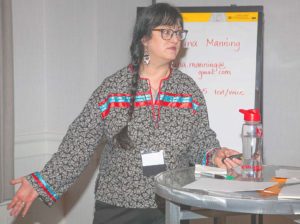
Fostering the “other tradition”
Race Amity Conferences since 2011 — with support from the National Spiritual Assembly of the Baha’is of the United States — have brought together people from a wide variety of fields and backgrounds.
Through addresses, music, drama and workshops with a focus on young people, they celebrate and encourage the “other tradition” of close collaboration, amity and love among Americans of varied races.
But they also serve as a spark for action. For instance, the conference held in November 2019 included a full-day Moral Mini-Clinic, bringing together about 200 young people for inspiration, discussion, planning and ice cream.
College and high school students were invited from Massachusetts and New Hampshire — “a great mix of kids” from rural, suburban and inner-city areas, Smith says, gathered with financial support from like-minded organizations and with volunteer chaperoning by teachers.
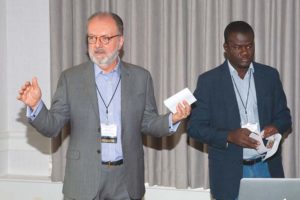
Presenters included Jesse Washington, a commentator on race, sports and culture for The Undefeated; Tim Wise, an anti-racist author and expert on white privilege; Hugh Locke and Timote Georges, co-founders of the Smallholder Farmers Alliance (SFA) in Haiti; Don Mullan of Hope International Ireland, in support of the Great Green Wall of Africa project; Chris Hastings, executive producer of the WORLD Channel public television project; Atlanta spoken-word artist MC Class; and more.
In small cross-racial groups, the young people learned about and, in many cases, committed to support service initiatives in the United States and abroad. For instance, the Great Green Wall of Africa project attracted about 30 youths to generate funds for tree planting.
“Down the line we will have kids who … will get the opportunity to actually go to Ghana in the summer and spend a week or so” working with female-operated cooperatives that grow the trees, Smith says.
Other popular projects included the SFA, an environmental/agricultural project (Boston has the largest U.S. population of Haitians, Smith notes), and the American Exchange Project, which brings youth from across the country into new environments.
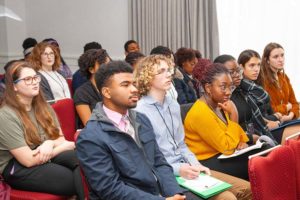
Inspiration from breakout sessions
In the SFA session, Locke says, he and Georges “had one of the most robust Q&A sessions ever” with a group that was nearly all students. One of them, studying at the Fashion Institute of Technology in New York, made introductions that will give the SFA an opportunity to address a future conference on “the connection between our work with smallholder farmers in Haiti and the Timberland company.”
A wide variety of other presenters sparked animated conversations among all ages. For instance, when Aram Ferdowsi of Tennessee spoke on “From New Immigrant to World Citizen,” “kids were totally blown away,” Smith says, as so many participants or their parents were recent immigrants.
Another workshop, “Striving Toward Social Accord: Our Response to the 2020 Presidential Campaign,” offered the opportunity to apply “win-win thinking” in response to divisive political rhetoric.
Co-facilitated by leadership trainers Malii Watts Witten of EngageBetween and Tatyana Fertelmeyster of Connecting Differences, the session was based in part on the value of “building trust before the moment requires it,” Witten says. The groups discussed moments from 2020 campaign debates that could trigger “diversity hot buttons” or other emotional responses. With examples of positive conversation that draw on practical skills, participants say they began learning:
- “… not to let those triggers be so overwhelming that they cloud my observations.”
- how to distinguish personal evaluation from “what things are actual facts that we can agree on.”
- “… [to] hold onto the principles of racial amity and equality to keep our country what it was destined to be by God for all His children.”
Recognition and relationships
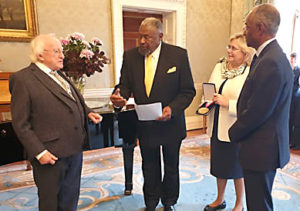
The conference provided an opportunity for the NCRA to present Race Amity Medals of Honor to:
- Michael Higgins, president of Ireland;
- Cherry Steinwender, co-founder of the Houston-based Center for the Healing of Racism;
- Robert Rosenfeld, founder of Idea Connections Systems and Mosaic Partnerships; and
- Tim Wise, a keynote presenter.
Long-term relationships have flowed from the preparations for the 2019 conference. In January, NCRA announced new Allied Programs in Race Amity, including Hope International; Unity Works Foundation, which works with educators and civic leaders to address racial prejudice in schools; and Mosaic Partnerships, which works to connect students with young people of different races and cultures.
The NCRA has also overseen development of a study and discussion guide, “Be the Change We Seek in Race Relations,” based on “The Vision of Race Unity,” a 1991 statement of the Baha’i National Spiritual Assembly. That guide is available on request.
And the organization helped facilitate two regional conferences in 2019: the Tearing Down the Walls Conference in Nashville in June, attended by students and faculty from 18 schools; and the first Southwest Regional Race Amity Conference in October, with the collaboration of Mesa Community College in Phoenix.
All of this, Smith says, draws on the legacy of a handful of Washington, DC, Baha’is and Howard University professors, who in 1921 “contacted everyone, promoting cross-racial friendships and social justice,” to bring together that first gathering for interracial amity.
A movement starting a century ago
The efforts and example of ‘Abdu’l-Baha, head of the Baha’i Faith 1892–1921, provided the spark for the first Race Amity Conferences, held by U.S. Baha’is in 1921, and for a number of years afterward. At every turn during His visit to North America in 1912, ‘Abdu’l-Baha emphasized the central principle of the Baha’i Faith: the oneness and unity of the human family.
During the “Red Summer of 1919,” white Americans instigated assaults and race riots in many cities and towns that left hundreds of black Americans dead.
Against this backdrop, to focus the mission of Baha’is to address racial disunity, the following year ‘Abdu’l-Baha directed Agnes Parsons — a white Baha’i of high social standing from Washington, DC — to organize a convention to promote amity and unity among blacks and whites.
Parsons collaborated with Baha’is such as Coralee Cook, a black professor at Howard University, and attorney Louis Gregory, as well as with prominent political figures such as Sen. Moses Clapp of Minnesota, to hold the first National Race Amity Convention in 1921.
Click here for more of that event’s history.


